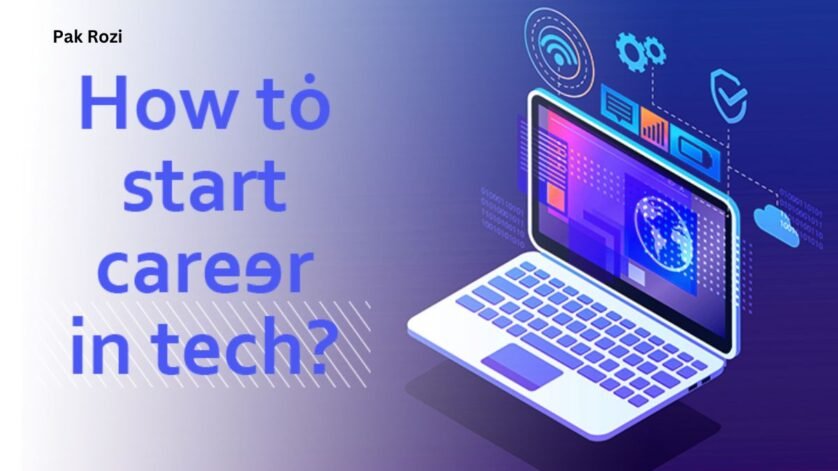In reality, entering the Information Technology World is an exciting area yet challenging. As the Information Technology Industry keeps evolving constantly, it encompasses a variety of fields, which are suitable for a different set of skills and interests. Here is the step-by-step guide to get you started in Information Technology.
Know the Information Technology Industry
The IT industry includes software development, cybersecurity, data science, and network management. Every field has different roles and skills, so knowing the industry will help you determine where to focus.
- IT provides several career paths with specialized skills.
- Research to stay updated on technology trends and demands.
Evaluate Your Interests and Strengths
Knowing what excites you and where your strengths lie will guide you in choosing a career. If you like coding, data analysis, or cybersecurity, you will know well where to go.
- Know your strengths and focus on suitable roles.
- There are various fields in IT requiring different skills and mindsets.

Get a Relevant Education
Formative education in IT can give you a basic framework and, hence, a competitive edge within the job market. Here are many of the courses pursued by people: most of them pursue Computer Science or related studies like Information Systems; however, there are alternatives.
- Computer Science or Information Technology degree.
- Another good alternative is certification where one specializes in one or more related areas.
Learning Programming Languages In Information Technology
Most IT jobs require programming languages. Learning Python, Java, or SQL can help you stand out and make you understand how software and data interact.
- Python and Java are versatile and widely used languages.
- SQL is important for managing and analyzing data.
Build a Strong Technical Foundation
lay a robust technical foundation
As the IT field goes, every needed technical foundation begins with basics such as networking, databases, and operating systems. It is through these basics that you will be successful in most of the IT positions.
- Understand the Linux and Windows operating systems.
- It further expands your skill set with learning about networks and databases.
Get Practical Exposure
It assures the real exposure of one’s theory in practical and vice versa. Internship, apprenticeship, freelancing, or even volunteering presents a chance for the hands-on learning process and increases confidence within skills.
- Internships offer valuable on-the-job training.
- Personal Projects- experimenting and self-study.
Obtain IT Certifications
Certifications validate your skills, show commitment to learning and give you a competitive advantage, especially if one has no formal degree in IT.
- CompTIA A+ is a good certificate to start with.
- The ideal certification for networking is offered by Cisco- CCNA.

Network with Industry Professionals
Networking can probably help you find a job, get mentorship, and even get a head of current trends in your industry. In return, these are relationships by industry professionals and could become open doors for your learning and many benefits in life.
- Attend the IT events, meetups, and webinars.
- Connect with the IT professional on LinkedIn. They would guide you for sure.
Practice Problem-Solving
Some basic skills you will be fully in control of in IT are problem solving. Most often, you will face a challenge you need to solve logically but more creatively. This skill therefore tends to be very effective even in the most challenging tasks while working in any IT area.
- Participate in the coding challenges to help develop these abilities.
- Real-life and practical experience application is in IT jobs.
Build a Strong Portfolio
A portfolio will demonstrate skills and presents a good way for you to stand out to employers. Include all relevant projects, code samples, and achievements to demonstrate your capabilities effectively.
- A GitHub profile can also be considered your coding portfolio.
- Add projects that demonstrate applicable skills for the role you’re targeting.
Search for Entry-Level Jobs
Entry level provides hands-on experience and serves as a stepping stone to the next high-value position. Jobs such as the Help Desk Technician, IT Support, or Junior Developer should be excellent entry points.
- These jobs give one an opportunity to learn as one continues on with duties.
- They serve as building grounds for more prosperous futures.
Stay Updated with Industry Trends
The IT industry is very dynamic and thus changing constantly, so there is a need to update the current trends for career growth. Regular learning of new things and updating oneself helps in keeping the individual relevant and competitive.
- Read up on tech blogs, forums, and industry podcasts.
- Continuously learning new things will make you learn new technologies.
Conclusion
A career in Information Technology is a fulfilling journey that promises great scopes for specialization and growth. The more you build your education, work with hands-on experience, and keep track of industry trends, the more you can pave a smooth success path in IT. Remember, IT is an affair of continuous learning, so to grow and stay safe you need to be adaptable and committed to growth.\
FAQ’s
How Do I Get Started in Information Technology?
Find out what key skills one needs, such as programming and networking, through online courses or certification. Find experience through internships or projects and network with professionals for insight and job leads.
Can I really start my career in IT?
Yes! IT supports entry-level positions without requiring experience or a degree. And with certifications and hands-on practice, you can work from lowly positions like IT Support or Junior Developer and grow into specialized positions as you gain experience.
